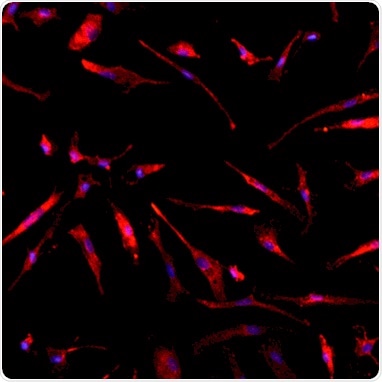Take your neuroimmunology research to the next level!
Our Human iPSC-derived Microglia are suitable for a variety of applications including in vitro disease models, phenotypic screening and immunology studies.

Axol’s Microglia Maintenance Medium and Supplements have been tailored to support iPSC-derived Microglia. Providing you with an optimized culture system for the study of neuroinflammation in Alzheimer’s disease, multiple sclerosis and Parkinson’s disease.
About Axol's hiPSC-derived Microglia
Homogenous Population. >90% pure population of TMEM119 positive microglia
Functional & Physiologically Relevant. Terminally differentiated iPSC-derived Microglia generated from human iPS cells are highly phagocytic and respond to inflammatory stimuli
Assay-Ready & Easy-to-Use. Pre-plated in 96-well plates and are ready for assay within 4 days
Axol’s Human iPSC-derived Microglia provide a reproducible, physiologically-relevant model in an easy-to-use, assay-ready format for investigating neuroglia involvement in neurodegeneration and neurodevelopment. We also offer a fully optimized serum-free Microglia Maintenance Medium to promote and support the maintenance of microglia.
Microglia are commonly described as the immune cells of the brain, with key roles in brain development, neurogenesis, synaptic plasticity and homeostatic maintenance.
Axol’s method for generating iPSC-derived microglia mimics the in vivo pathway of development for brain resident macrophages and produces microglia that are representative of primary human microglia in vitro. Our iPSC-derived Microglia deliver the advantage that they provide an almost infinite source of microglia from a single donor with a normal karyotype.
The homogenous and reproducible population of our iPSC-derived Microglia exhibit physiologically relevant functionality as they are highly phagocytic and produce cytokines in response to pathogens. Our iPSC-derived Microglia also express the microglia-specific marker TMEM119 along with myeloid markers TREM2 and IBA-1. These phenotypes make iPSC-derived Microglia suitable models for investigating neuroinflammation in Alzheimer’s disease, multiple sclerosis and Parkinson’s disease.
Functionally validated for:
• Cytokine release
• Phagocytosis
• Efferocytosis
• Gene expression of microglia markers
• Protein expression of microglia markers
• Cell surface marker expression
• Co-culture